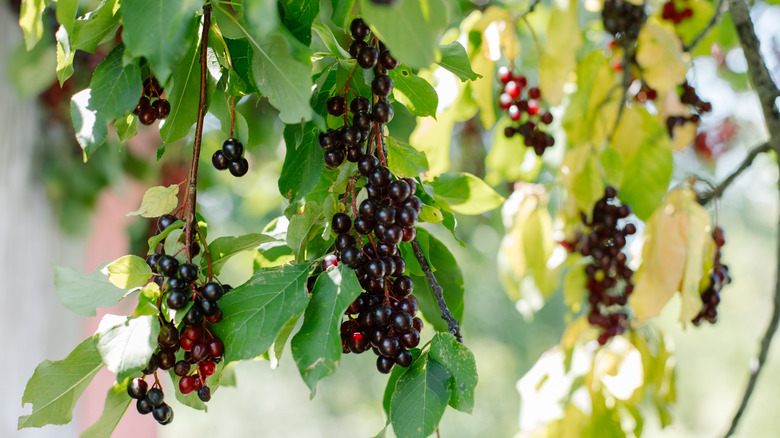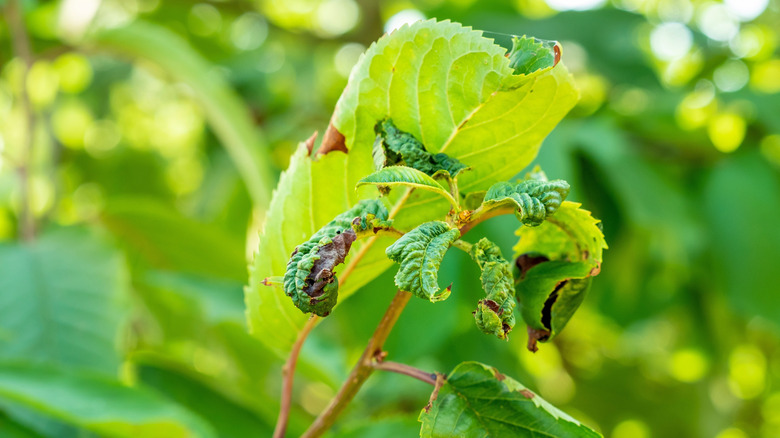Signs Your Black Cherry Tree Isn't Getting Enough Water
Black cherry trees (Prunus serotina) are a fast-growing tree that pollinators and birds can't get enough of, but they can be quite particular when it comes to water. While they are fairly resilient, they still need a consistent supply of moisture to thrive. Some clear signs of water deficiency include crispy leaves, stunted growth, premature leaf drop, and reduced fruit production. If you notice these signs, you could be making a mistake that is preventing your tree from getting enough water.
Changes in the leaves are some of the first signs that your tree isn't getting enough water. Dehydrated leaves may start turning brown, especially at the edges. In more severe cases, the leaves may begin to curl or even drop off prematurely, which is a sign of stress caused by dehydration. Another common sign is that the leaf edges become crispy. If you run your finger along the leaves and they feel brittle or dry, then it's likely that the tree isn't getting enough water.
Aside from changes in the leaves themselves, you might also notice that your black cherry tree is losing leaves earlier than usual or they're not growing back as lush as they should. Leaf drop can happen for several reasons, but when it occurs alongside other signs of dehydration, like brittle leaves, it's a good indicator of water deficiency. Your tree might also show reduced growth or stunted new shoots, making it look like it's lagging behind its normal growth cycle.
How to check for water stress and what to do about it
Some other signs of dehydration will require closer inspection. Another way to assess whether your black cherry tree is lacking water is to check the soil around its base. If the soil feels dry and crumbly, or if it's pulling away from the base of the tree, this is a strong indication that the tree isn't getting enough moisture. Dry soil can also lead to poor root development, which compounds issues with water stress. Reduced fruit production can be another symptom of heat stress. One clear sign that your fruit tree is in heat stress is if your black cherry tree has fewer blossoms or if it's dropping fruits prematurely.
To revive a dehydrated tree, ensure it gets about 1 inch of water per week, whether from rainfall or manual watering. Deep, infrequent watering is most effective, as it encourages roots to grow deeper into the soil. Applying a 2 to 4-inch layer of mulch around the base of the tree can help it retain moisture, regulate soil temperature, and reduce evaporation. Be sure to leave a small gap around the trunk to prevent rot.
Improving soil conditions is another critical step. If the soil is compacted or drains poorly, amending it with organic matter, such as compost, can improve water retention and create a healthier root environment. Regularly monitor the soil using a moisture meter or by digging a small test hole near the base of the tree to ensure the soil remains consistently damp but not waterlogged.

